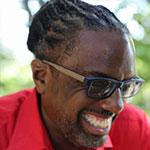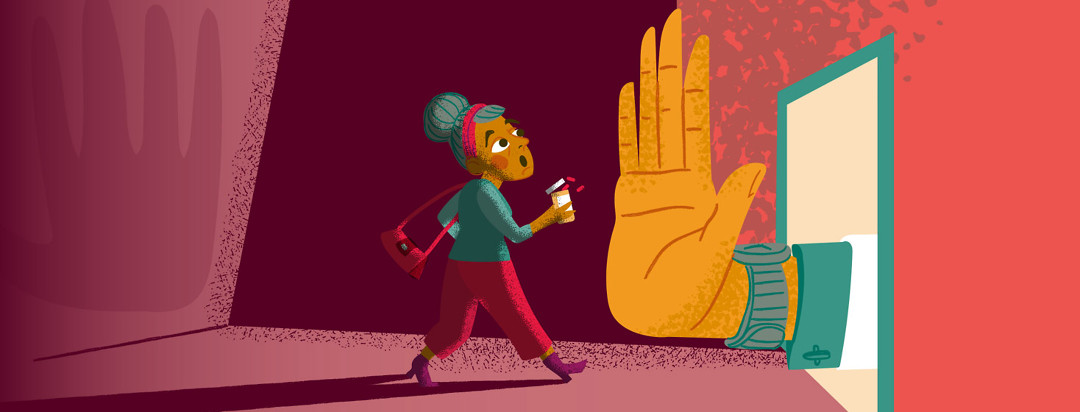Uplifting Black Voices: Various Experiences In Healthcare Settings
HIV stigma and discrimination infiltrate different parts of a person's life. Today, people living with HIV/AIDS continue to experience discrimination in various settings. It may occur in housing, education, employment, and social services. Healthcare professionals have also been known to be biassed toward people living with HIV.1-3
To be Black and HIV positive often lends to a compounded effect: a person may deal with both discrimination or prejudiced attitudes because of their race/ethnicity and their positive HIV status. This can greatly impact finding HIV care and staying connected to treatment.4
We wanted to learn more about the personal experience of advocates for H-I-V.net. We asked: "Can you describe a past situation where you experienced discrimination in a healthcare setting? Did that impact how you sought out HIV care in the future?" Thankfully, some advocates in this piece did not experience discrimination. While some of their experiences here highlight positive outcomes, they also show how prejudiced attitudes can negatively impact a person's relationship with HIV treatment or care.
Experiences in healthcare settings
 "Once, I had fallen into a depression and hadn’t been taking my meds regularly. I wanted to talk to my doctor about it, but the nurse who did my intake made note that I seemed down and inquired why. I explained how I was in a low spot and struggling. Her response was disbelief on her face and her body language changed. She began to lecture me. I let her because it’s her job and she didn’t know me. She then left the room and was in the hall loudly talking to someone else and stated 'She hasn’t been taking her meds and she claims to be an advocate! How?' I never heard the other person’s response. I told my doctor. The next time I saw the nurse, she was polite and distant. She is one of the hundreds of reasons that I hate trying to find HIV care." - Kamaria
"Once, I had fallen into a depression and hadn’t been taking my meds regularly. I wanted to talk to my doctor about it, but the nurse who did my intake made note that I seemed down and inquired why. I explained how I was in a low spot and struggling. Her response was disbelief on her face and her body language changed. She began to lecture me. I let her because it’s her job and she didn’t know me. She then left the room and was in the hall loudly talking to someone else and stated 'She hasn’t been taking her meds and she claims to be an advocate! How?' I never heard the other person’s response. I told my doctor. The next time I saw the nurse, she was polite and distant. She is one of the hundreds of reasons that I hate trying to find HIV care." - Kamaria
 "I have not had any past experiences of discrimination in a healthcare setting, thank goodness. I can’t even imagine if that happened to me. But, if it did, it would certainly impact how I look for HIV care in the future. I have been denied my medicine before, all because I missed 1 appointment and the infectious disease doctor denied me my refills until I made another appointment. I was scared, crying, and very upset. It showed me that I was just part of his paycheck and he cared nothing about me with HIV and being a human being who could not live without them. He didn’t care that I was running out of medicine: I never went back, reported him, and went without my meds until I found another physician." - Dee
"I have not had any past experiences of discrimination in a healthcare setting, thank goodness. I can’t even imagine if that happened to me. But, if it did, it would certainly impact how I look for HIV care in the future. I have been denied my medicine before, all because I missed 1 appointment and the infectious disease doctor denied me my refills until I made another appointment. I was scared, crying, and very upset. It showed me that I was just part of his paycheck and he cared nothing about me with HIV and being a human being who could not live without them. He didn’t care that I was running out of medicine: I never went back, reported him, and went without my meds until I found another physician." - Dee
Start a Forum
 "I have been fortunate to have overall positive outcomes in the healthcare settings I have engaged in. I do remember when I was receiving my diagnosis, I felt attacked by the 2 men who were delivering the news. After sharing that I tested positive for HIV, they both began to question me without taking a beat. I felt as if they had no compassion for what I may have been experiencing. I remember tuning them out and getting up to leave the facility. That experience had a very negative impact on my next steps. I left from there thinking, 'If this is how I am going to be treated, I will most likely die of AIDS.' It created a great sense of fear in me. It paralyzed me, and I couldn’t move past it for some time. It was more than 2 years later when I sought out care and treatment." - Khafre
"I have been fortunate to have overall positive outcomes in the healthcare settings I have engaged in. I do remember when I was receiving my diagnosis, I felt attacked by the 2 men who were delivering the news. After sharing that I tested positive for HIV, they both began to question me without taking a beat. I felt as if they had no compassion for what I may have been experiencing. I remember tuning them out and getting up to leave the facility. That experience had a very negative impact on my next steps. I left from there thinking, 'If this is how I am going to be treated, I will most likely die of AIDS.' It created a great sense of fear in me. It paralyzed me, and I couldn’t move past it for some time. It was more than 2 years later when I sought out care and treatment." - Khafre

Join the conversation